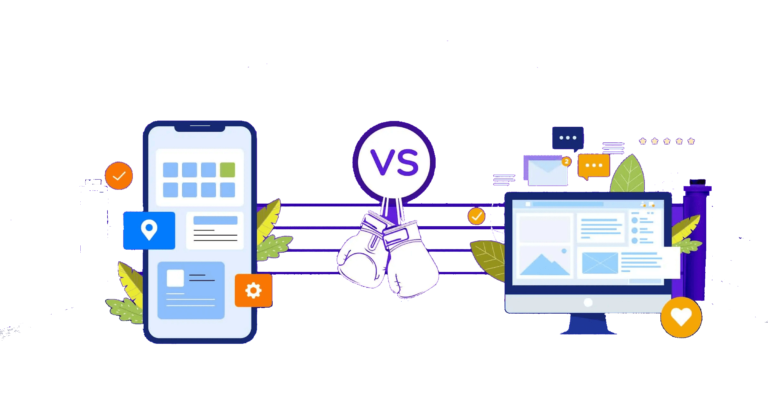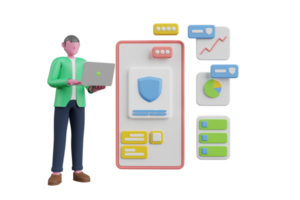
Distinction Between Web Apps and Mobile Apps
Distinction Between Web Apps and Mobile Apps: In a time when digital interfaces are ubiquitous, the terms “web app” and “mobile app” are frequently used interchangeably. But to create effective digital experiences, developers and businesses need to understand the differences between the two. Let’s now examine the distinctions between online and mobile applications.
Accessibility
Web apps are accessible through web browsers; no device installation or download is required. The fact that users may access them using URLs makes them platform-independent.
Development
Their construction mostly makes use of HTML, CSS, and JavaScript. Often responsive, they ensure usability across a variety of devices.
Updates
Web app updates and modifications may be visible to users as soon as the server makes them. Users do not have to manually download updates.
Connectivity
Web applications require an internet connection to function properly since they process and store data through server interactions.


Installation
App stores that allow you to download and install mobile apps on a specific device include the Google Play Store and the Apple App Store.
Development
They are often made with platform-specific languages, such Swift for iOS or Java/Kotlin for Android, and tailored for the particular operating system.
Updates
Users must manually update mobile applications whenever new versions are released; this is often done through app store updates.
Device Features
By using device-specific features like the camera, GPS, and push notifications, mobile applications have the potential to provide a more seamless user experience.
In summary, device integration, updates, development, and accessibility are the primary differences between web and mobile applications. Web apps are more widely accessible and are easier to update than mobile apps, which take advantage of specific device features to offer more personalized and integrated experiences. Understanding these differences is necessary to decide which type of app best suits the needs of a project or business.


In conclusion, each platform—web and mobile—has benefits and uses of its own, and the decision of whether to develop first usually boils down to factors like functionality, target market, and user experience. By recognizing these differences, businesses and developers may make informed decisions when launching digital projects, ensuring the creation of robust and user-friendly apps.
